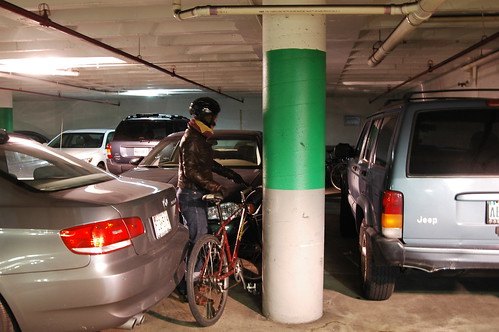 Free parking and one of its not-so-hidden costs — induced demand.
Free parking and one of its not-so-hidden costs — induced demand.
From an Atlantic Cities interview with a city planner who’s trying to help cities wean themselves from free parking, as good as an explanation as I’ve ever seen of the class divide underlying the economics of transportation — and what we can do about it:
Tumlin commonly hears one other objection to his ideas: Where will the poor people park? The poorest people, he’s found, aren’t looking for parking because they don’t own cars. But among the rest of this demographic, he says surveys show that poor people also place an extremely high value on their time. They too often say they’re willing to pay a little more for parking if it means they don’t have to waste time looking for it.
“It’s very interesting to do the detailed demographic surveys and ask people what they want,” he says. “And what we find again and again is that the people who are complaining about ‘oh my goodness, where will the poor people park?’ are not the poor people.”
But cities have to be careful, he adds, that as they raise parking prices – and some residents will inevitably be harmed by this – they’re conscious of investing the revenue in ways that will help mitigate that harm, in, for instance, better bike, transit or walking infrastructure.
“You can create an enormous net public equity benefit by charging for parking,” he says. “The real argument is that there is nothing more inequitable than our current policies of providing gross subsidies to the wealthiest and most privileged members of society, who are the people who own the most cars.”